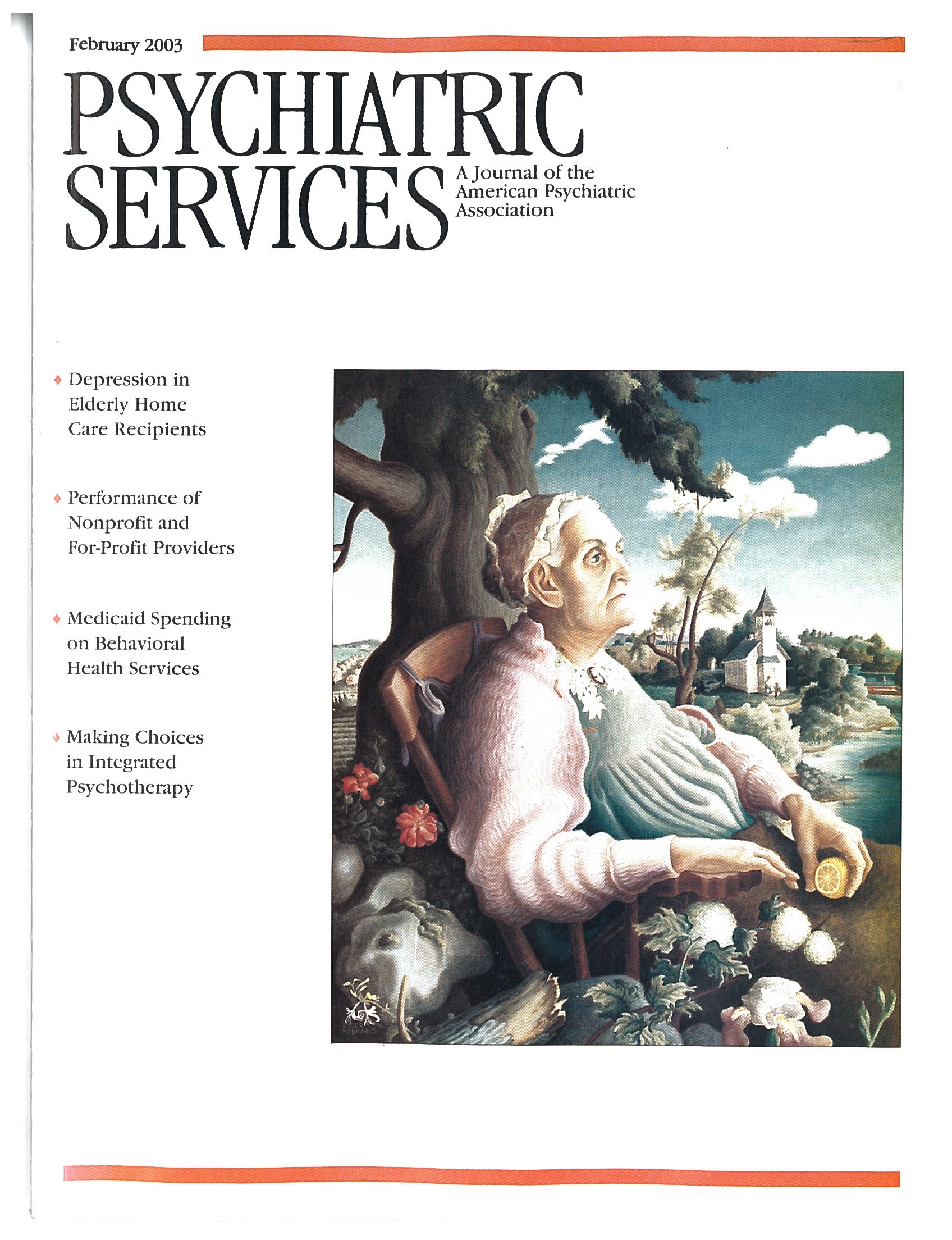To the Editor: I was disappointed to read the following statement by Dr. Dickey and her coauthors in the discussion section of their article in the July 2002 issue (
1): "At the very least, psychiatrists must be alert to medical problems and take care to ensure that referral to appropriate medical treatment is provided." That is an unacceptably low standard of medical care to expect from psychiatrists, and, in effect, suggests that they have no more medical expertise than nonphysicians.
There is a considerable amount of confusion about the medical treatment that psychiatrists provide. Many of the studies are surveys of psychiatrists or of a sample of practices. Dr. Dickey and her colleagues cite several studies in their literature review, including one that has been cited as evidence that the medical care delivered by psychiatrists is substandard and that important conditions are missed. The study was uncontrolled and used nonrepresentative samples of patients.
The medical expertise of psychiatrists is obvious in the books, practice guidelines, and journal articles that they write and in clinical settings. The work that a psychiatrist does in conducting a diagnostic evaluation, making a medical diagnosis, and obtaining appropriate care for a patient is not written about and will probably never be adequately studied. Recent reviews by the Institute of Medicine (
2) show that the use of survey methods to examine the quality of care can demonstrate a high level of problems—including missed diagnoses—in practically any medical specialty. Data from surveys should not be used to conclude that psychiatrists do not provide adequate medical care, especially in the context of reports of the high prevalence of medically unexplained physical symptoms among cohorts of medical outpatients and the high level of distress these symptoms can cause (
3,
4).
On a typical day, an inpatient psychiatrist assesses patients for medical emergencies, acute nonemergency conditions, comorbid medical illnesses, and baseline conditions that affect psychiatric treatment. Inpatient settings provide an environment in which patients can be educated about health care maintenance. The necessary screening tests can be ordered, and referral to primary care physicians for follow-up can be arranged. Psychiatrists in these settings need to be more knowledgeable about classes of nonpsychiatric medications. In looking over the records of the inpatients whom I discharged in the past year, I find that the number of drug classes from the
American Hospital Formulary Service (
5) that I was responsible for prescribing was more than twice the number of classes prescribed in a typical outpatient psychiatric practice. The correct prescription of these compounds includes determining whether or not there is an interaction or a contraindication. Among the patients with psychoses whom I treat, I also routinely diagnose and treat all of the eight common medical disorders that Dr. Dickey and her coauthors mention in their article. I refer these patients to primary care physicians for follow-up of these disorders.
Thousands of psychiatrists go to work every day, and they are acutely aware of the medical illnesses of their patients. To suggest a lower level of medical expertise among psychiatrists relegates them to nonmedical status or seriously compromises expectations about the quality of the medical care they provide. A better conclusion might be to recognize that because psychiatrists are squarely at the intersection of medicine and mental health, it is time to give them what they need to do a better job.

